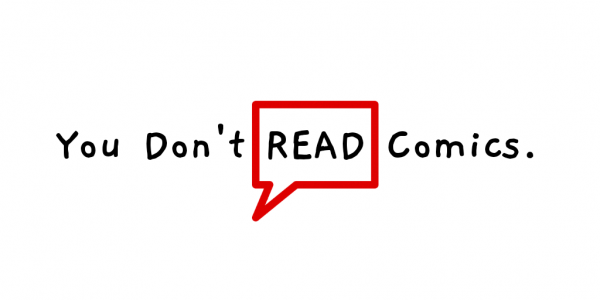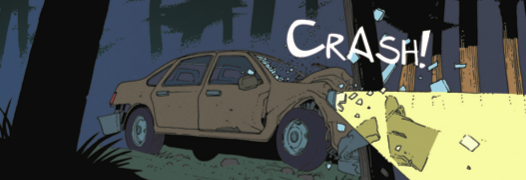Haha #6 // Review
Hank, the Very Happy Clown, shoots himself in the head with a revolver. The punchline? He shot himself in the head on the roof. There’s more to it than that. (There always is.) And so it is that writer W. Maxwell Prince concludes his six-issue dark clown-based anthology series Haha. The whimsical darkness feels a bit dull in the final issue of the series, but Prince DOES manage to hit the final sad clown story of the series in a way that feels vividly sullen thanks to some well-executed plot framing. The artwork by Martín Morazzo and Chris O’Halloran nails the sketchy sadness of the overall mood.
Hank isn’t able to live up to the image he’s trying to sell. Everything is falling apart. His dog got hit by a bus. His financial situation has forced him to move from a small apartment to a smaller apartment with almost no hot water. Hank isn’t getting as much work as a clown these days. Too sad to be Happy Hank. He’s cleaning up in a locker room when an off-duty clown who looks a lot like Joaquin Phoenix hands him a revolver. A near miss with a kid in front of an ice cream truck and a crash into a tree at night finds Hank beginning to understand the point of the gun that had been given to him.
Prince is covering ground that he’d covered in earlier issues of the series, but with Issue Six, he’s doing so in a way that feels like it’s framed MUCH better than it had been in earlier issues. Hank is a perfect epitome of the sad, suicidal clown cliché. Too bad he isn’t more compelling. The stereotype that Prince is working with would only truly be compelling if Prince could have found some way to make Hank iconic AND profound. Everything that happens at the end of Hank’s life feels obvious. There’s no subtlety or poetry to it. And that may be a lot like life, but it’s not much to encounter between two covers.
Morazzo and O’Halloran kept the darkness suitably gritty. Hank isn’t a clown with humanity scrawled over the top of the face paint. He’s a human being wearing face paint that’s flawless and a hell of a lot more happy than he is. The action is static and uninteresting, but there isn’t a whole lot of action. It’s all morose drama that manages to feel warm and cozy in big crowd shots and the occasional wide, atmospheric panorama. It might have been interesting to see Morazzo and O’Halloran fit the story around a more compellingly rendered story, but what they’ve got at the end of the series is brought to the page quite well.
The entirety of the anthology series doesn’t approach any kind of sense of finality, but it’s not for lack of trying. Prince and company manage some moments of thematic expansion as Prince covers some of the bigger themes that have been ricocheting through the series. The art team manages a few beautiful panoramic panels. The series lacks an overall sense of composition that would make it feel like anything other than a dark stumble through the kind of simple, unsullied sadness that doesn’t often make it into pop fiction. It’s sad. It’s simple. It’s not terribly compelling, though. It holds a mood perfectly. And maybe that’s all it really needs to do.










